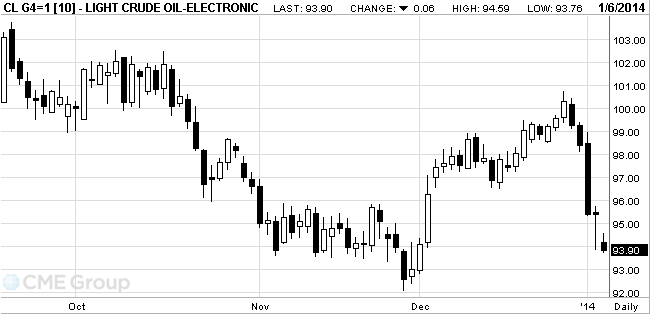- Oil fluctuated
Notícias do Mercado
Oil fluctuated
West Texas Intermediate crude fluctuated between gains and losses as freezing temperatures in the U.S. spurred energy demand and as U.S. fuel supplies rose.
Prices moved in an 83-cent range. The coldest air in almost 20 years is sweeping over the central U.S. toward the East Coast, threatening to topple temperature records. Inventories of gasoline and distillate fuels, including diesel and heating oil, jumped to a two-month high in the week ended Dec. 27, the government reported Jan. 3. WTI dropped the most in 18 months last week.
WTI for February delivery was unchanged at $93.96 a barrel at 10:23 a.m. on the New York Mercantile Exchange. Earlier, it touched $93.76, the lowest price since Dec. 3. The grade declined 6.3 percent last week, the steepest loss since June 2012. The volume of all futures traded was about 33 percent below the 100-day average.
Brent for February settlement climbed 38 cents, or 0.4 percent, to $107.27 a barrel on the London-based ICE Futures Europe exchange. Volume was 11 percent below the 100-day average. The European benchmark crude was at a premium of $13.31 to WTI. The spread was $12.93 on Jan. 3.
